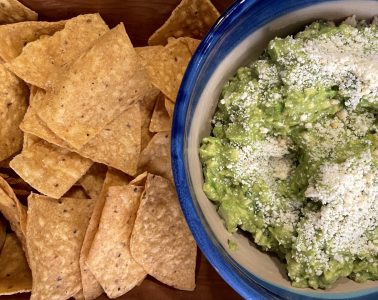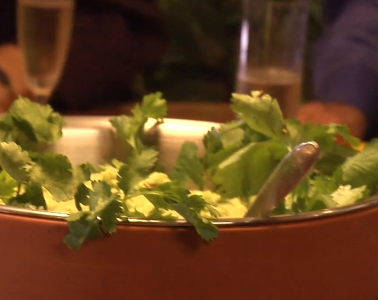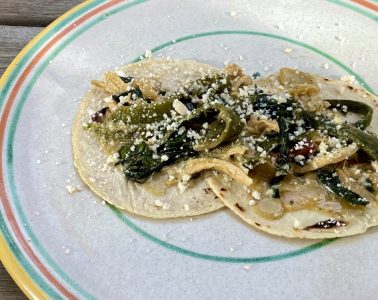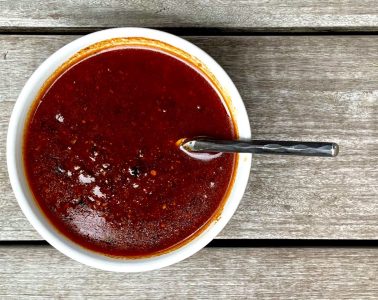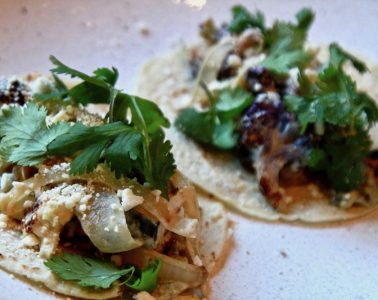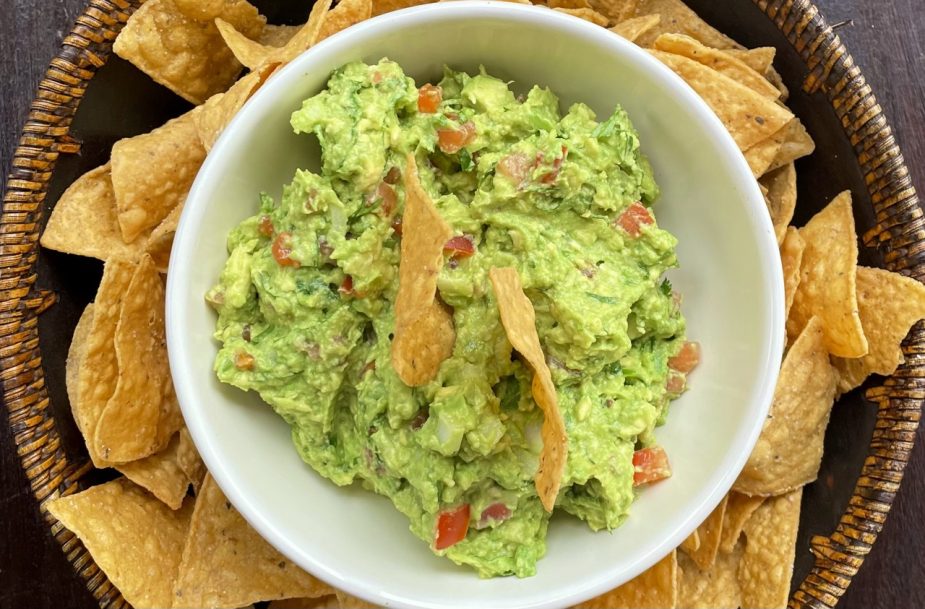
More than any recipe in the Mexican canon of classics, guacamole evolves and transforms into what the cook likes or what is right for the occasion. In Mexico, guacamole tends toward simple because it’s most often destined to be a condiment for tacos and the like. In the U.S., guacamole explodes with complexity, often chock-full of vegetables, since here we almost always scoop it up with chip after chip. While many contemporary creations have been written (I confess to having written many of them myself), there is a traditional foundation from which all of them spring: Coarsely mashed thoroughly ripe avocados, seasoned with salt and just enough lime to brighten (but not overwhelm) the avocado richness. Add emblematic Mexican vegetables to suit your own taste: white onion for fresh crunch, ripe tomato for sweetness, fresh green chile for that spicy zing, and cilantro for herby aroma. It’s that simple, though this approach requires the one in charge of preparation to understand the role of each ingredient they’re adding and to taste regularly until the perfect balance is achieved. So making your perfect guacamole requires a fair amount of experience, of trial-and-error. But I can think of quite a few less rewarding endeavors.
Some notes about avocados: After being picked, ripe avocados—those that have developed their full complement of oily richness--are quickly placed in cold storage (below 50 degrees F) to keep them from starting the softening process. Once they are brought back to room temperature, the flesh begins to relax from rock-hardness to a voluptuousness unparalleled in the fruit kingdom (yes, avocados are botanically fruit). That takes five to seven days. And, at home, there is really no way to speed it along. (No matter what you’ve heard, the scientists tell us that putting them in a paper bag on the counter doesn’t decrease the time more than an hour or two.) So you need to plan ahead … or shop at a Mexican grocery, where customers expect to find soft avocados 24/7. With avocados, I distinguish between two stages of softness: the first is “sliceable,” what the sushi chefs need, the second is “mashable,” what we need for making the best guacamole. There is usually about 24 hours between those two stages. When testing avocados for mashable softness, press on the bulbous end; that’s the last place to soften.
INGREDIENTS
- 3 medium (about 1 1/4 pounds total) mashable-soft avocados
- Salt
- 1 to 2 tablespoons fresh lime juice
- 1/4 to 1/2 cup finely chopped onion (less than 1/4 inch pieces is ideal)
- 1/3 to 2/3 cup chopped ripe tomato (a little larger than ¼-inch pieces is ideal)
- 1 to 3 tablespoons very finely chopped fresh green chiles (1 or 2 serranos, a small to a large jalapeño)—seeds and veins removed before chopping if you want
- 2 to 5 tablespoons chopped fresh cilantro
INSTRUCTIONS
Remove the little “button” at the stem (pointy) end of each avocado. Cut around the pits, starting at the stem end, continuing to the blossom (bulbous) end, then coming back up to the stem end again. Twist the two halves apart, then remove the pits (either with a spoon or by wedging the knife blade into the pit and twisting to dislodge it). With a large spoon, scoop the flesh from the skin into a bowl. With an old-fashioned potato masher, a large fork or the back of a large spoon, roughly mash the avocado. (For wonderful guacamole texture, I like to see distinctive pieces of unmashed avocado in the mix.)
Season with salt and lime juice: start with a scant teaspoon of salt and a tablespoon of lime, gently stir them in, then taste and continue adding salt and lime until the avocado tastes like the best avocado you’ve ever had. Avocados have very little natural sodium and no acid to speak of, so adding just the right amount of both those flavors will “complete” the avocados’ flavor.
Scoop the chopped onion into a strainer and rinse under cold water. Shake off the excess water, then add the minimum measurement to the bowl, along with the minimum measurement of tomato, chile and cilantro. Stir everything gently together, then taste and add more until you achieve your perfect guacamole.
You’re ready to scoop your guacamole into a bowl, garnish it with additional cilantro (or radishes or a little fresco cheese, among many choices) and serve it as a condiment for tacos or with tortilla chips or sliced vegetables as a dip.
